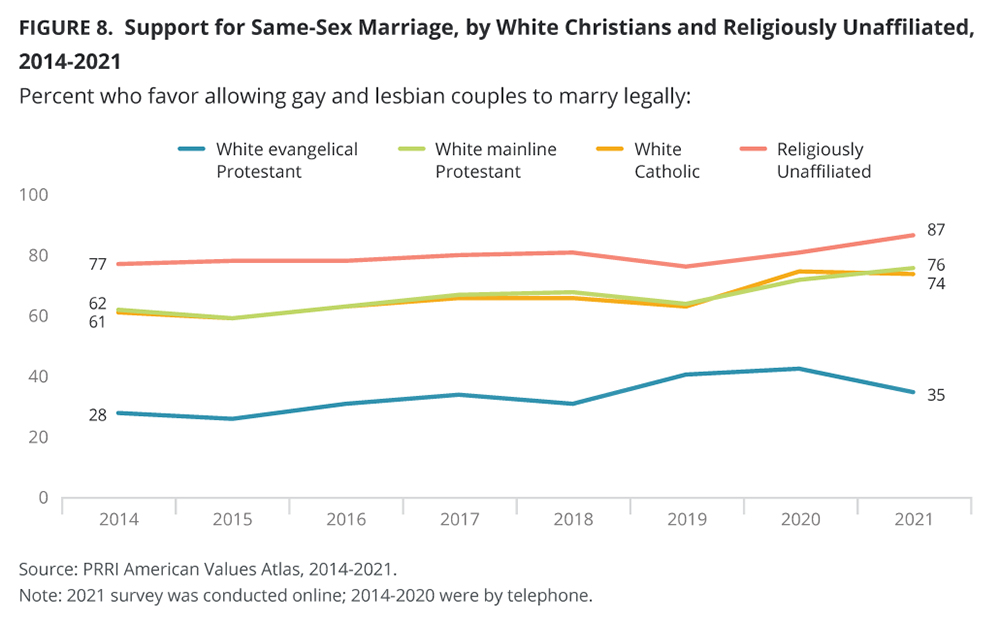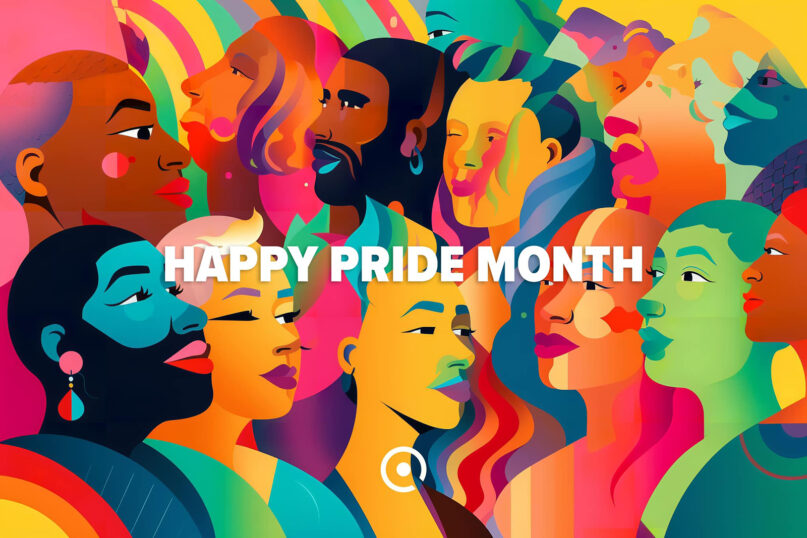(RNS) — Quest Church, an influential Seattle megachurch, is leaving its denomination, the Evangelical Covenant Church, over its differences with the ECC over acceptance of LGBTQ Christians.
Quest’s move to voluntarily disaffiliate from the denomination comes as the ECC was prepared to vote this summer on expelling Quest and another LGBTQ-affirming congregation, Awaken Church in St. Paul, Minnesota.
“We have discerned that, to be the body of Christ, we must embrace the fullness of God’s life in all of our members, including our LGBTQIA+ siblings,” said the Rev. Gail Song Bantum, lead pastor of Quest, in a written statement shared Monday (June 5) on Facebook.
“This belief emerges from our identity and values as an ECC church, not despite this identity and these values. We leave the denomination grieved that the ECC refuses to recognize God’s work in our midst, and yet hopeful for the ways the Spirit is moving in our community.”
RELATED: Americans’ support for LGBTQ rights higher than ever, even as white evangelicals lag
Song Bantum wrote on Facebook that Quest sent a formal letter to the ECC that morning informing officials of its withdrawal from the denomination.
The ECC did not immediately respond to a request for comment by RNS.
The Rev. Eugene Cho — who left the church in 2018 and now leads Bread for the World, a prominent Christian advocacy group dedicated to ending hunger — planted Quest Church in 2001, initially holding weekly services at Interbay Covenant Church.

The Rev. Gail Song Bantum. Photo by Brandon Hill, courtesy Baker Publishing
In 2007, Interbay gave Quest its building, as well as “everything the church owned and who they were,” Song Bantum wrote, describing the church’s history of “generosity and radical inclusion in response to the call of the Spirit.” That continued in 2021 when Quest became “fully affirming of our LGBTQIA+ siblings (in theology and practice),” she said.
Quest’s social media pages include rainbow-colored logos with wishes for a happy Pride Month, which the LGBTQ community celebrates each June, and its website describes it as “fully affirming.” Membership and leadership, including the role of pastor, is open to anybody who “calls Quest home,” the website says, “including, but not limited to, Lesbian, Gay, Bisexual, Transgender, Intersex, Asexual, and Queer folks.”
That created tension with the ECC, which has asked its ministers to refrain from participating in same-sex weddings since 2015, although LGBTQ inclusion is not among its essential doctrines, according to reports by Christianity Today.
In October 2022, the Covenant Executive Board voted to remove Quest from its roster of churches after one of its pastors participated in a same-sex wedding, the report said. Delegates to the denomination’s annual meeting were set to vote whether to formally expel the church from the denomination during this summer’s meeting, it added.
The meeting, called Gather 2023, is scheduled for June 28 to July 1 in Garden Grove, California. Quest’s removal did not appear on its agenda Monday, although Awaken’s does.
In 2019, the ECC removed Minneapolis’ historic First Covenant Church and its pastor, the Rev. Dan Collison, from its roster after the church said it would treat its LGBTQ members as equals, allow married gay clergy and be open to officiating same-sex marriages. It was the first time the denomination had voted to remove a congregation from its roster over its position on LGBTQ inclusion.
The ECC isn’t the only denomination wrestling with the inclusion of LGBTQ Christians as Americans’ support for LGBTQ rights is higher than ever.
That includes 76% of white mainline Protestants who say they support same-sex marriage, according to PRRI. White evangelicals are outliers, with just 35% reporting support for same-sex marriage.

“Support for Same-Sex Marriage, by White Christians and Religiously Unaffiliated, 2014-2021” Graphic courtesy of PRRI
Most prominently, the United Methodist Church is splintering over whether to ordain and marry its LGBTQ members, a schism that is accelerating as its regional annual conferences meet this summer and approve requests from their member churches to disaffiliate. Since 2019, the UMC, the second-largest Protestant denomination in the U.S., has approved the departures of 4,359 of its 30,000 churches. Many of those leaving are concerned the denomination — whose rulebook currently bans the ordination of LGBTQ clergy and same-sex marriage — is becoming more affirming.
After listening to Quest members and leaders who are LGBTQ, Song Bantum wrote, the church saw “no other option but to leave and do so voluntarily.”
“As a multiracial and multicultural church, and as an Asian American woman who has personally faced anti-women-in-leadership decisions within the denomination, it is a wonder that churches are now being removed or strong-armed to ‘voluntarily’ leave over convictions on human sexuality,” she added.
“It speaks volumes to where the ECC’s sense of urgency and values lie—clearly not around upholding convictions of anti-racism or gender equity. Somehow, the ECC has become a space that prioritizes doctrinal uniformity on a singular issue over relational unity in areas that are non-essentials of faith.”
RELATED: Evangelical denomination expels entire congregation over LGBT policy





